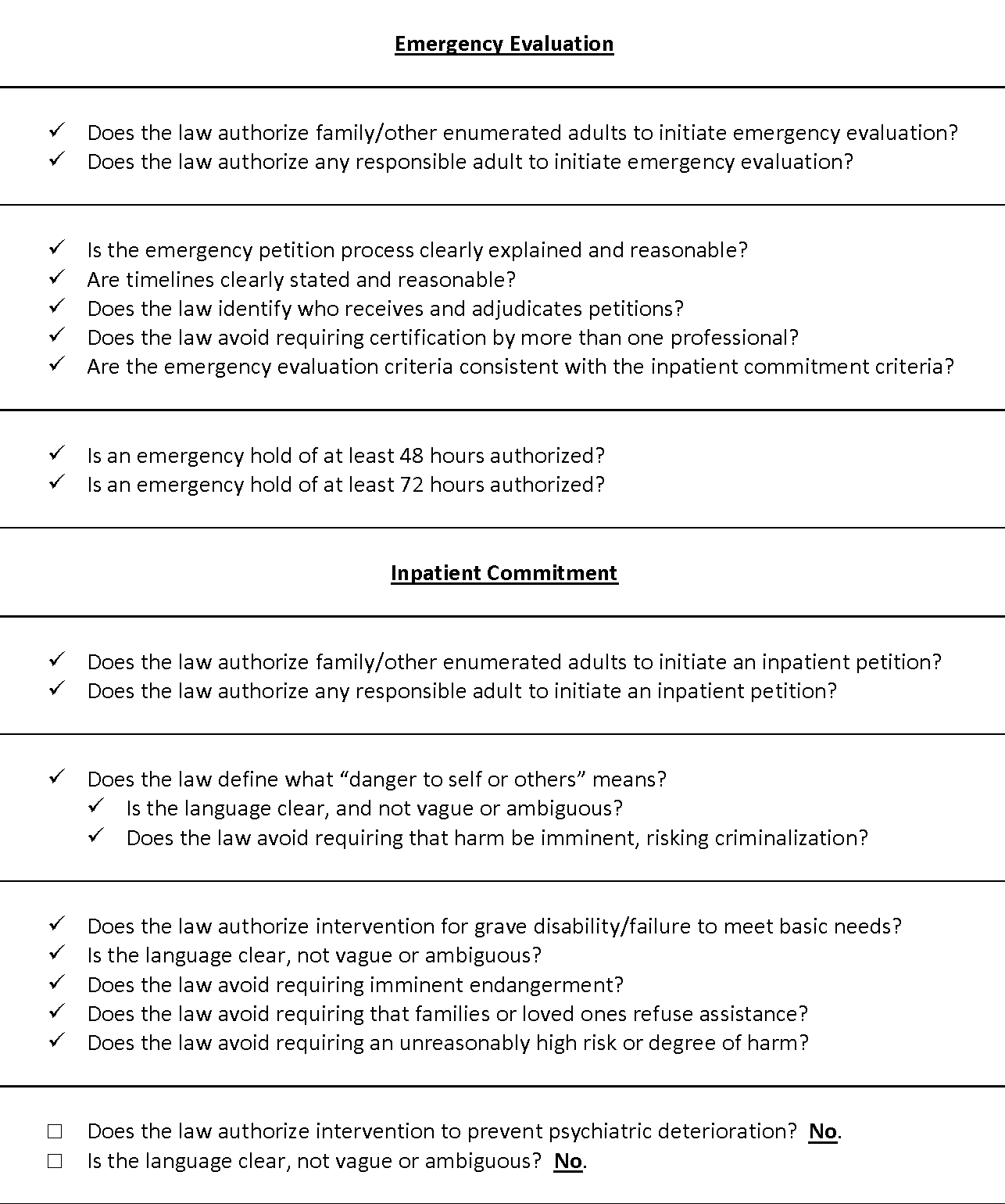Family Resources in Resources in Connecticut
- Department of Mental Health and Addiction Services (portal.ct.gov) Resources and contacts
- Mental Health Resources in Connecticut (rtor.org) Nonprofit provides an online form for personalized assistance from a resource specialist
- NAMI Connecticut (namict.org) Support groups, training, information
- Disability Rights Connecticut (disrightsct.org) Protection and advocacy for individuals with disabilities
- Housing and Homeless Services (portal.ct.gov/DMHAS) Connect with a specialist to find local programs and resources
- Connecticut Inmate Search (state.ct.us) Find inmates by name, birthday, or DOC inmate number
- Connecticut Bar Association (ctbar.org) Legal assistance
How many people in Connecticut have SMI?
individuals with severe mental illness.
individuals with SMI who receive treatment in a given year.
of the adult population is estimated living with a SMI in the United States.
State psychiatric hospital beds in Connecticut
2023 total beds: 515
- Civil beds: 286
- Forensic beds: 229
2023 beds per 100,000 people: 14.2
Click here for more information about state psychiatric hospital beds in Connecticut.
A minimum of 50 beds per 100,000 people is considered necessary to provide minimally adequate treatment for individuals with severe mental illness. Connecticut fails to meet this minimum standard.
For Additional Information
Data is a powerful tool to advocate for change. Curious about a specific data point in your state? Reach out to us at ORPA@treatmentadvocacycenter.org
Fast Facts on SMI in Connecticut
Deinstitutionalization, outdated treatment laws, discriminatory Medicaid funding practices, and the prolonged failure by states to fund their mental health systems drive those in need of care into the criminal justice and corrections systems.
14%
1,384
515
3 to 1
2021 Connecticut State Mental Health Agency's expenditures
Every state receives block grant funding from the federal government to provide mental health services to their community. Below is some information about how these dollars are spent and compares to other state spending.
$971,432,855
33%
$11,298
2.6%
Connecticut's Treatment Laws
CONN. GEN. STAT. ANN. § 17a-502(a). Any person who a physician concludes has psychiatric disabilities and is dangerous to himself or others or gravely disabled, and is in need of immediate care and treatment in a hospital for psychiatric disabilities, may be confined in such a hospital, either public or private, under an emergency certificate as hereinafter provided for not more than fifteen days without order of any court, unless a written application for commitment of such person has been filed in a probate court prior to the expiration of the fifteen days, in which event such commitment is continued under the emergency certificate for an additional fifteen days or until the completion of probate proceedings, whichever occurs first.
CONN. GEN. STAT. ANN. § 17a-497(a). [S]uch application may be filed by any person and, if any person with psychiatric disabilities is at large and dangerous to the community, the first selectman or chief executive officer of the town in which he or she resides or in which he or she is at large shall make such application. CONN. GEN. STAT. ANN. § 17a-498(c)(3). If the court finds by clear and convincing evidence that the respondent has psychiatric disabilities and is dangerous to himself or herself or others or gravely disabled, the court shall make an order for his or her commitment, considering whether or not a less restrictive placement is available, to a hospital for psychiatric disabilities to be named in such order, there to be confined for the period of the duration of such psychiatric disabilities or until he or she is discharged or converted to voluntary status pursuant to section 17a-506 in due course of law. CONN. GEN. STAT. ANN. § 17a-495(a). “dangerous to himself or herself or others” means there is a substantial risk that physical harm will be inflicted by an individual upon his or her own person or upon another person, and “gravely disabled” means that a person, as a result of mental or emotional impairment, is in danger of serious harm as a result of an inability or failure to provide for his or her own basic human needs such as essential food, clothing, shelter or safety and that hospital treatment is necessary and available and that such person is mentally incapable of determining whether or not to accept such treatment because his judgment is impaired by his psychiatric disabilities.

Connecticut does not have statutory authority for outpatient civil commitment/AOT.
Recommended updates to treatment laws
- 1
Add psychiatric deterioration criteria or amend grave disability criteria to include it
- 2
Adopt statutory authority for outpatient civil commitment/AOT
